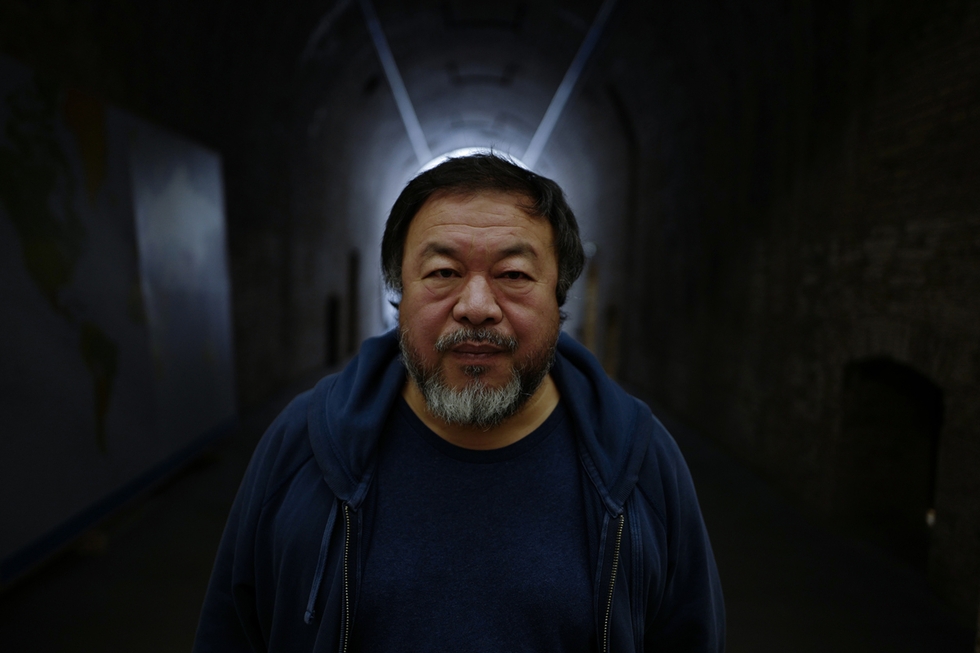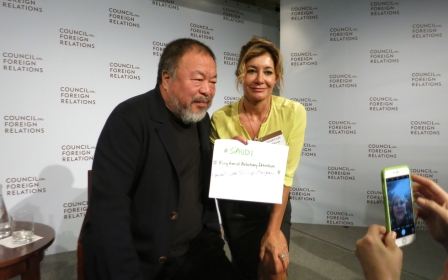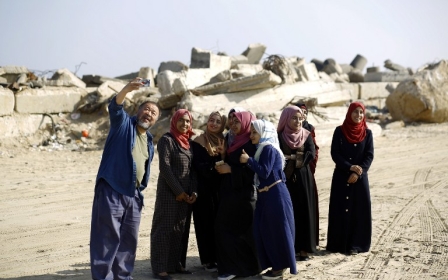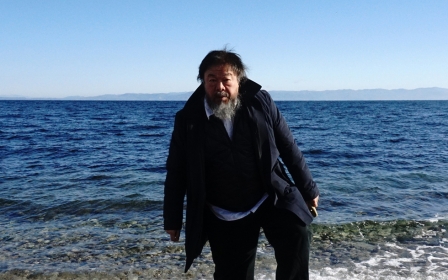Ai Weiwei refugee installation to go on display in Prague

Refugees are the focus of the biggest installation of Chinese dissident artist Ai Weiwei, which goes on display next week at the National Gallery in Prague.
Called "Law of the Journey", the 70-metre-long (230-foot-long) inflatable boat with 258 oversize refugee figures will be shown from March 16 through the rest of the year, the gallery said.
"The largest individual object by this Chinese artist reflects his intense interest in the fate of refugees, which led him to 40 refugee camps in different locations across the globe," it said.
Ai spent the last year visiting such migrant and refugee hotspots as the US-Mexican border badlands to the Turkish-Syrian frontier and crowded holding camps on Greek islands.
"When I first came to Lesbos, we found a half sunken boat there. I asked to be taken to it and sent the other people away. I wanted to experience what it was like to be there alone," Ai said, quoted in the gallery statement.
"I felt what it was like to be on a poorly equipped boat, all by myself, as an insect on a leaf in the middle of the lake," added the 59-year-old painter, sculpture and photographer.
"In the boat I found a baby bottle and a Bible soaked with seawater. That was when I decided to explore this, to go after all those thoughts that are in my head."
An outspoken critic of the Chinese government, Ai was detained in 2011 for 81 days and had his passport confiscated for four years. He later travelled to Berlin where his wife and son live.
Recently he has staged several high-profile exhibitions inspired by migrants, including decking out the columns of Berlin's Konzerthaus with 14,000 orange life jackets from Lesbos.
Last month, he said he has looked with dismay at the Trump presidency, the US entry ban on Syrian refugees, the attempt to deny visas to citizens of several mainly Muslim nations, the pledge to build a wall with Mexico and invoke mass deportations.
Middle East Eye propose une couverture et une analyse indépendantes et incomparables du Moyen-Orient, de l’Afrique du Nord et d’autres régions du monde. Pour en savoir plus sur la reprise de ce contenu et les frais qui s’appliquent, veuillez remplir ce formulaire [en anglais]. Pour en savoir plus sur MEE, cliquez ici [en anglais].




